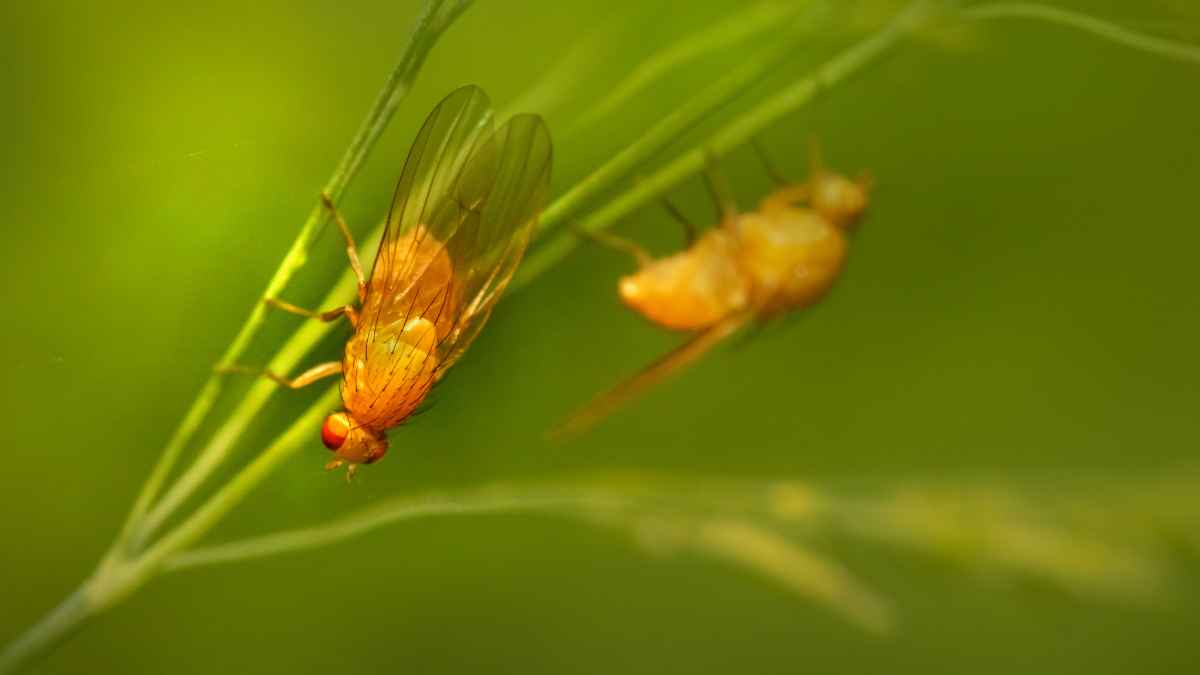A study conducted by researchers has given results never before imagined about the role ofinsects such as the vinegar fly in the consumption of alcohol. They reported that deprivation of sexual intercourse causes these animals to consume more ethanol. They found that the lack of sex decreases the concentration of a key neurotransmitter in their brain’s reward system.
The most affected by this situation are the male flies, which experience “ cravings” similar to humans with “cravings“ similar to humans in relation to ”drowning sorrows in alcohol”. This usually happens after several unsuccessful attempts at sexual intercourse. This is confirmed by a study conducted at the University of California, San Francisco. They found that depriving flies of copulation alters their reward systems and makes ethanol more palatable to them.
“We knew that environmental and social factors affect drug use in humans and wanted to see if we could reproduce this phenomenon in Drosophila,” says Ulrike Heberlein in the article published in the journal Science. To obtain these data, we sought to compare the attitude of males that had had very different sexual experiences.
A careful research process with surprising results
For example, one group had “sexual rejection” sessions with non-receptive females for one hour, three times a day, four consecutive days a week. Meanwhile, the other consisted of males who were paired for six hours each day for four days with multiple receptive females.
After separating the groups, the scientists fed both 15% ethanol and non-ethanol food. The “rejected” males had a greater preference for the food with alcohol. This surprised the researchers, who also analyzed whether giving to drink was a consequence of the rejection or of the lack of dome. After a few minutes, they found the unthinkable: lack of sex increases alcohol consumption in males.
The trap in reward systems
Reward systems reinforce behaviors necessary for species survival. Among the most important are feeding, sexual relations and social interaction. Drugs, such as alcohol, activate the same neurotransmitters as these natural processes, which is the key to why they can be addictive.
The scientists also found that flies that mated had elevated levels of the neurotransmitter F, better known as NPF. In contrast, flies that did not copulate and consumed alcohol had lower levels of this neurotransmitter. “NPF appears to be a potent mediator of the effects of sexual experience and a key molecular player in the natural reward system of flies,” Heberlein said. Furthermore, what is interesting about this is that the scientists were able to moderate the alcohol consumption of the males by artificially inhibiting or enhancing the effect of NPF.
Similarities between flies and mammals
The study points out that neuropeptide Y (NPY) in mammals is equivalent to NPF in flies and have similar effects on brain reward systems. Their role is to regulate anxiety, sexual motivation, sleep and even alcohol consumption. “Some of the mechanisms involved in drug use and reward systems are highly conserved in evolution,” said the researcher.
The results of the research indicate that negative social experiences cause NPY levels in humans to decrease and behaviors that attempt to restore them are enhanced. This is the case of those people who “drown their sorrows in alcohol”. In fact, it is known that in states of grief and depression, ethane consumption is enhanced, although it is not yet clear whether this is cause or effect.
Remember that you can see other articles of special curiosity like this one from the science news section. To do so, just enter the specialized section of this digital newspaper.







